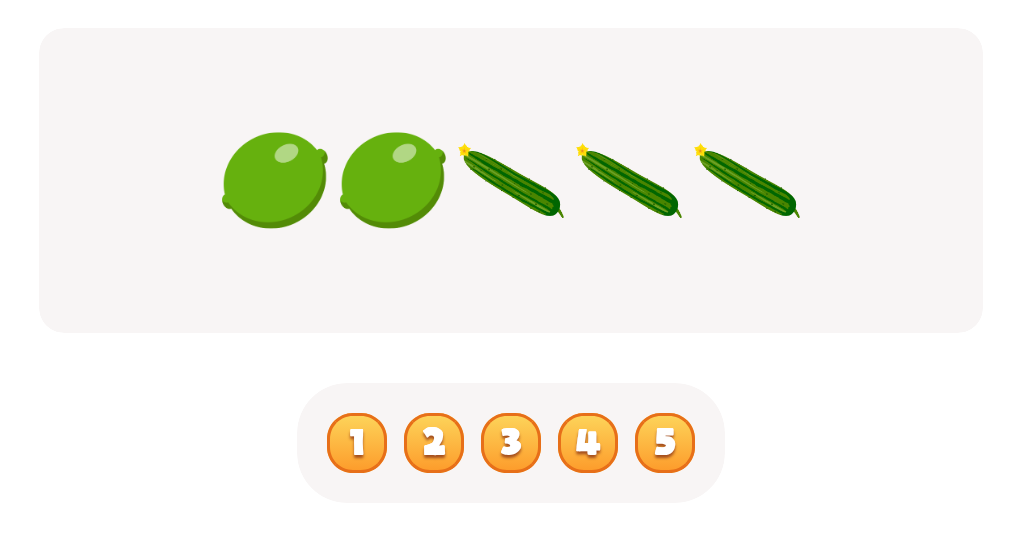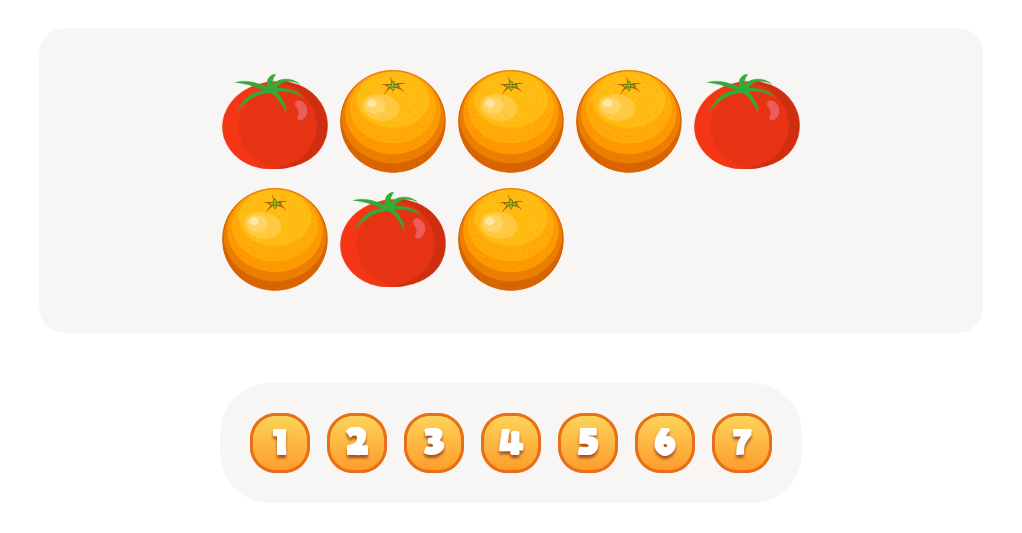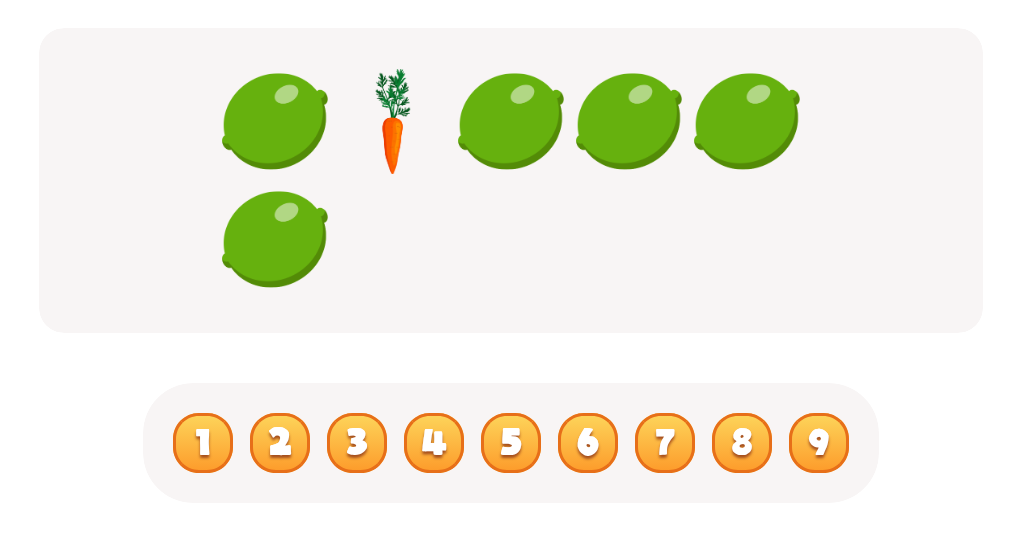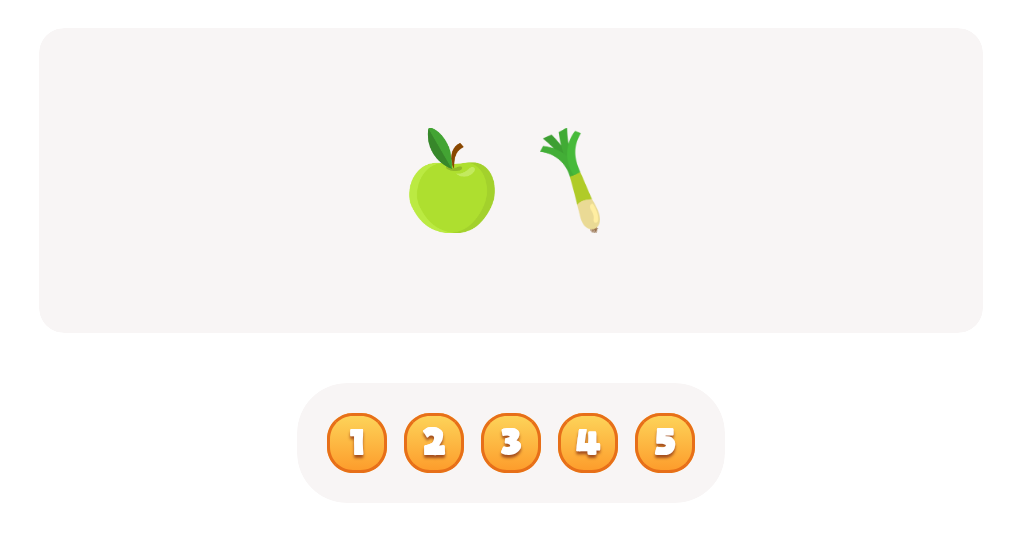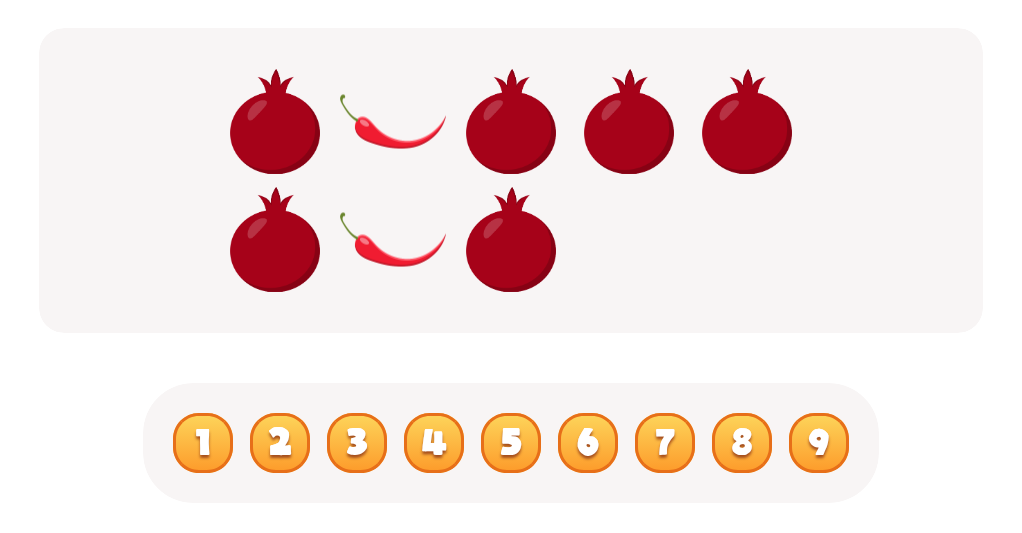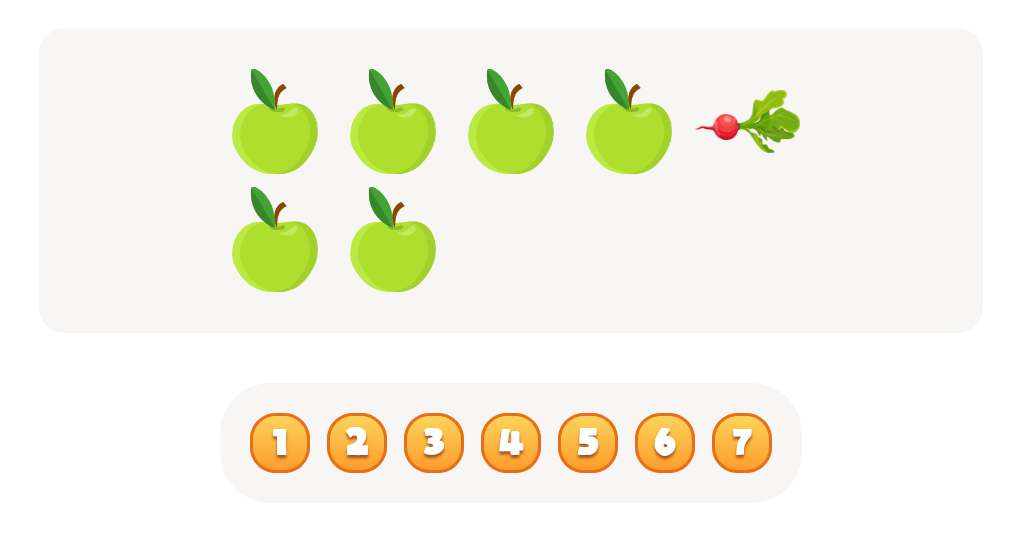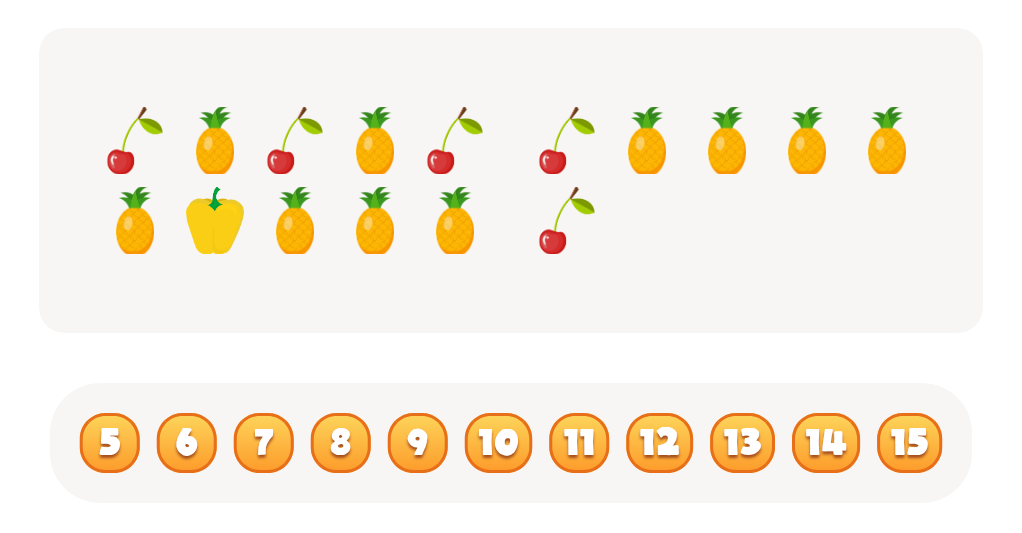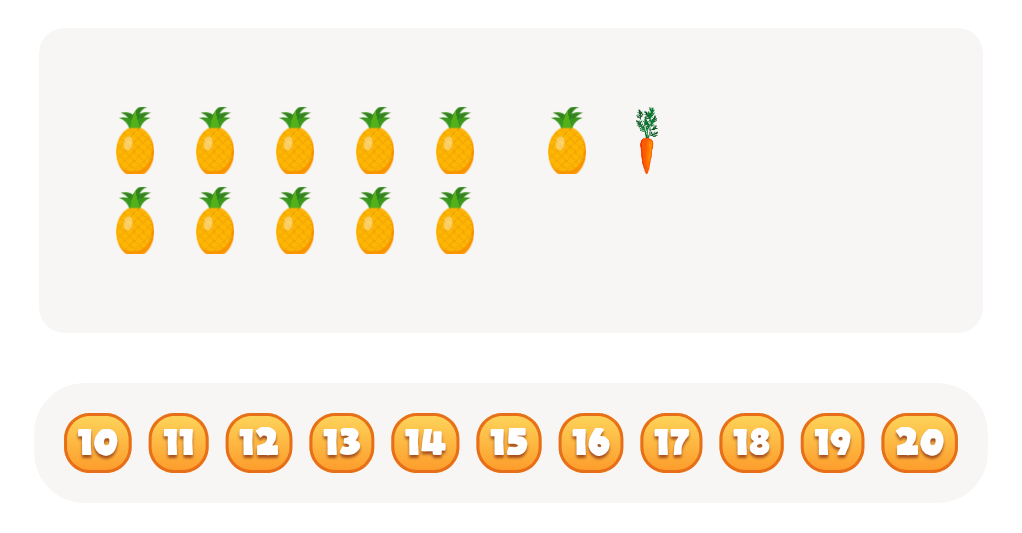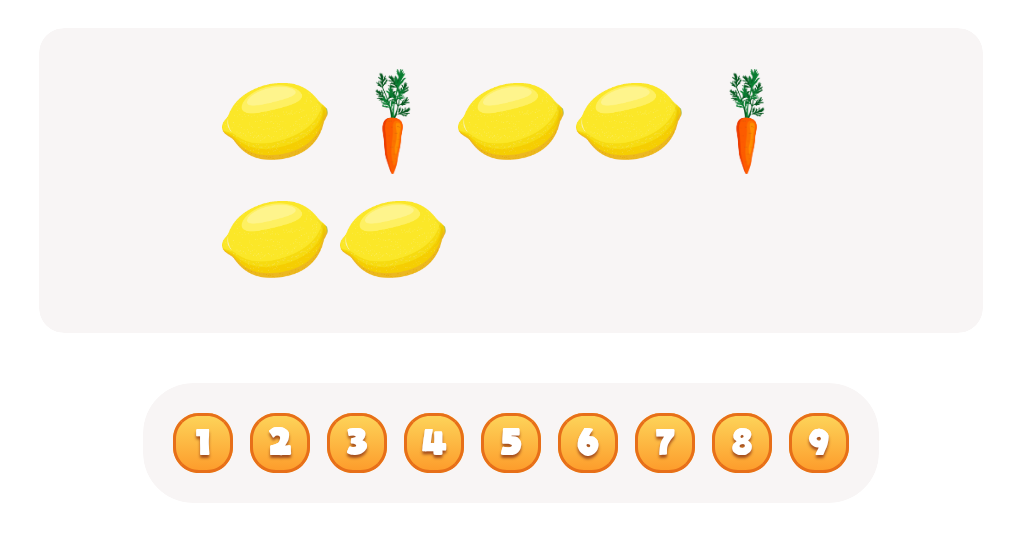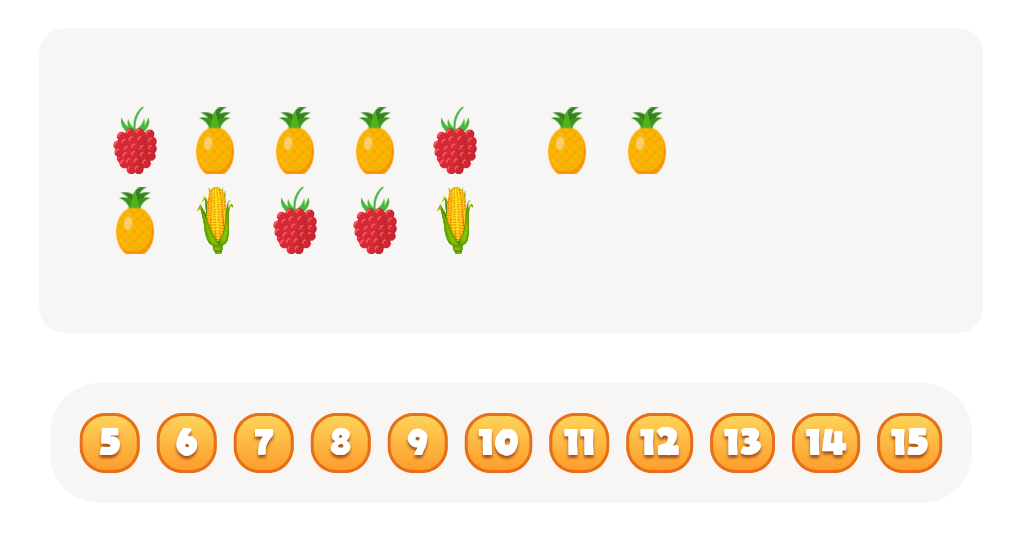Animal Classification Plants and Animals Worksheets for 8-Year-Olds
3 filtered results
-
From - To
Discover our engaging "Animal Classification Plants and Animals Worksheets" designed specifically for 8-year-olds! These worksheets offer a fun and interactive way for young learners to explore the fascinating world of plant and animal classification. Through exciting activities, kids will identify various species, learn about their characteristics, and understand their habitats. These expertly crafted resources not only enhance scientific thinking but also nurture a sense of discovery and curiosity about biodiversity. Perfect for classroom use or at-home learning, our worksheets will captivate young minds and foster a deeper understanding of the natural world. Unlock the wonders of science with our educational tools today!
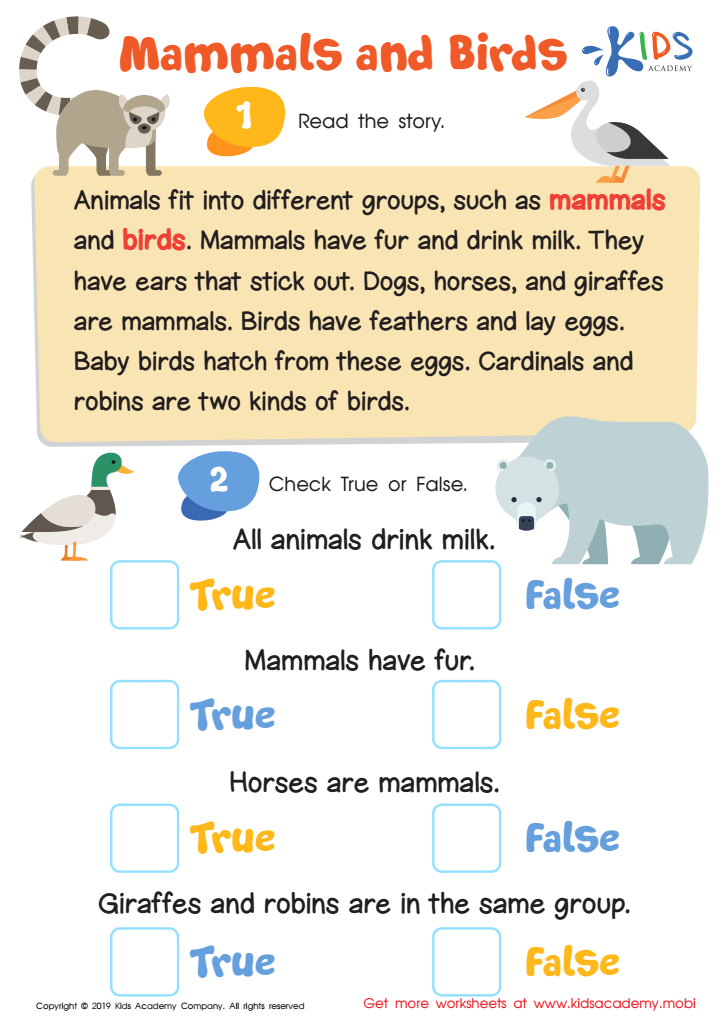

Mammals and Birds Worksheet
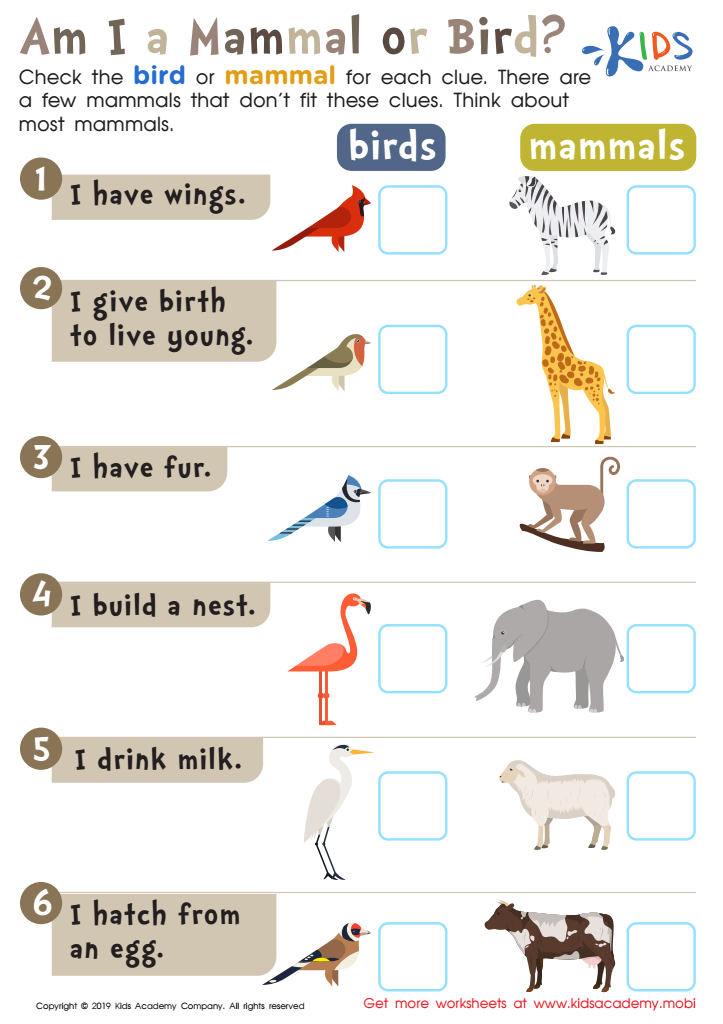

Am I a Mammal or Bird? Worksheet
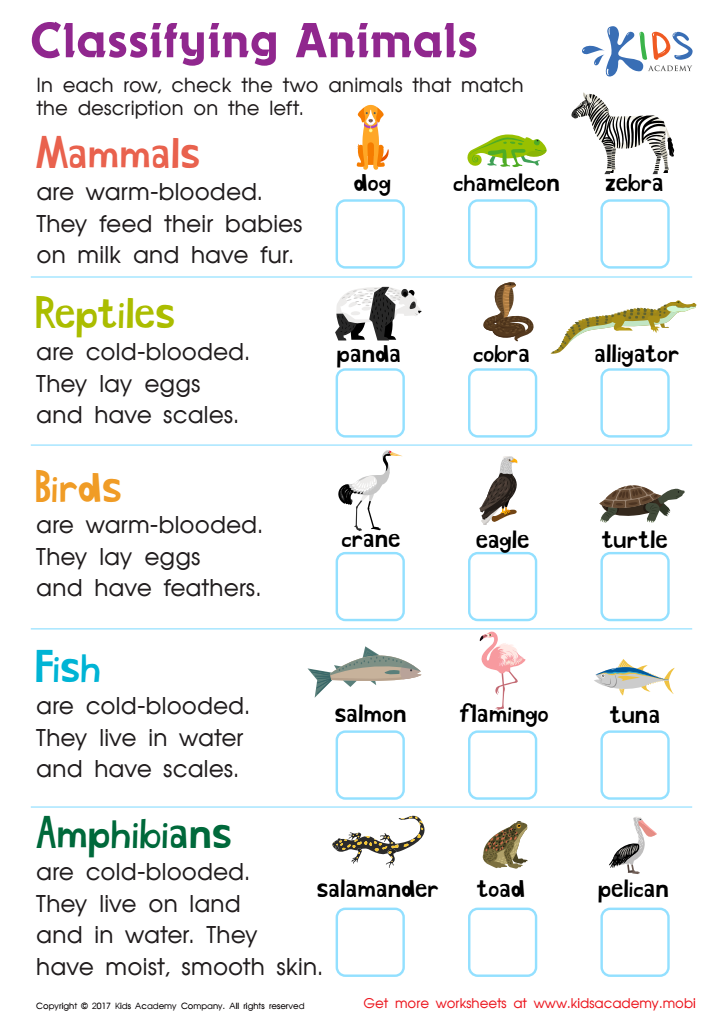

Classifying Animals Worksheet
Understanding animal classification is vital for 8-year-olds as it lays the foundation for biological literacy, critical thinking, and environmental awareness. Teaching children how to categorize animals and plants by their characteristics fosters curiosity and gives them the tools to comprehend the diversity of life. This knowledge not only enhances their scientific understanding but also encourages observation skills essential for future learning.
Furthermore, learning about classification connects students to ecological concepts like habitats, food chains, and biodiversity. This understanding cultivates a sense of responsibility towards the environment and nurtures empathy for wildlife. In an era where conservation is crucial, helping children grasp these ideas can inspire them to engage in efforts that protect ecosystems and wildlife.
Lastly, animal classification can create exciting learning opportunities, from interactive discussions to outdoor exploration. Parents and teachers can harness a child’s natural curiosity to make science a fun and engaging adventure. Sharing these experiences strengthens the bond between adults and children while instilling a lifelong love for learning about the world. Ultimately, an awareness of animal classification empowers children to make informed choices and become stewards of their environment in the future.

 Assign to My Students
Assign to My Students
